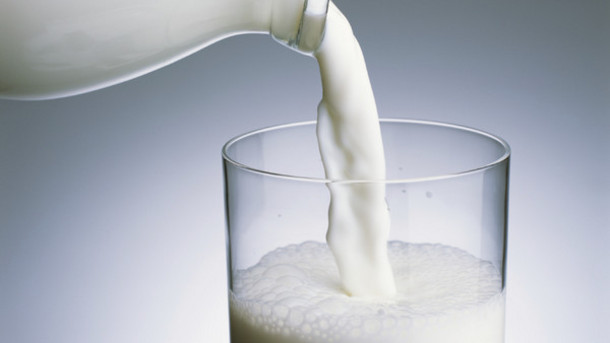
People with lactose intolerance are at lower risk of suffering from lung, breast and ovarian cancers, according to a new study published in the journal Nature. The findings support a potential link between dairy products and cancer, and may explain long-standing patterns of widespread geographic variation in cancer risk.
Previous studies have shown that there are large differences in breast and ovarian cancer incidence across different areas of the globe. Experts know, for instance, that the highest incidence of breast and ovarian cancer is in North America, Western Europe and Scandinavia, while incidence is lowest in East and Central Africa.
Twin studies and studies of immigrants have suggested that these differences in incidence are due to environmental factors rather than genetic or ethnic differences. The high consumption of dairy products in North America and Western Europe has been assumed by some researchers to contribute to these regions’ higher cancer incidence.
However, studies examining this link are inconclusive. For instance, a recent review by the World Cancer Research Fund and the American Institute of Cancer Research found a lack of evidence linking consumption of dairy products to breast cancer risk.
The researchers behind this latest study, from Lund University and Region Skåne in Sweden, took a slightly different approach in addressing the suggested link between dairy products and cancer incidence: they investigated whether low consumption of milk and other dairy products protects lactose-intolerant people against breast, ovarian and lung cancers.
Reduced risk likely due to dietary factors
Using nationwide data from two Swedish registers (the Inpatient Register and the Outpatient Register), the researchers identified 22,788 individuals with lactose intolerance and examined their risk of suffering from lung, breast and ovarian cancers.
Upon analysis, the team found that the risks of lung cancer (standardized incidence ratio [SIR] = 0.55), breast cancer (SIR = 0.79) and ovarian cancer (SIR = 0.55) were significantly lower in people with lactose intolerance compared to people without lactose intolerance, irrespective of country of birth and gender.
By contrast, the risks in their siblings and parents were the same as in the general population. “This suggests that the lower cancer risk in people with lactose intolerance may be due to their diet,” explains study author Dr. Jianguang Ji, associate professor at Lund University and researcher at the Center for Primary Care Research in Malmö.
In other words, because the cancer risk was not reduced in relatives of people with lactose intolerance, the results suggest that this protection against cancer is related to dietary factors, rather than genetic risk factors.
Dr. Jianguang Ji points out, however, that “it would be wrong to conclude that milk is a risk factor for these cancers.” Factors such as lower calorie intake because of low milk consumption or protective factors in plant-based milk drinks could also contribute to the negative association between lactose intolerance and cancer risk, he says.
For instance, in Asia, where whole grains, vegetables, fruits, tofu, soymilk, and other soy products are commonly consumed and milk is not a normal part of the diet, people are generally healthier and breast cancer is much rarer than in the United States and Europe. However, it’s not possible to say which of those factors are driving the reduced risk of cancer in Asian populations.
“We must interpret these results with caution because the association we found is insufficient to conclude a causative effect,” he says. “Further studies are needed to identify factors that explain the study’s results.”
Association between dairy and cancer risk remains unclear
Indeed, the relationship between milk and cancer appears to be a complex one, with some studies even suggesting that dairy products may offer protective benefits against certain types of cancer. In 2012, for example, a study published in the Journal of Dairy Science found that drinking milk may protect against the progression of colon cancer.
The researchers behind that study, also from Lund University, found that a milk protein called lactoferricin4-14 reduces the growth rate of colon cancer cells and increases DNA repair.
However, other studies have identified compounds in dairy products that are thought to facilitate cancer growth. Research shows that dairy product consumption increases levels of insulin-like growth factor I (IGF-1) in the bloodstream. IGF-1 is a potent stimulus for cancer cell growth, and high IGF-1 levels are linked to increased risk of prostate cancer and breast cancer.
Calcium itself may also play a role in the development of certain cancers: although the body needs some calcium, a high calcium load results in a lowering of blood levels of activated vitamin D. In the case of prostate cancer, for example, where vitamin D is thought to be protective, high dairy intake could therefore have a harmful effect.
For ovarian cancer, galactose, a component of the milk sugar lactose, has been under study as a possible culprit. A 2005 analysis of studies examining a relationship between dairy product consumption and ovarian cancer risk found that for every 10 grams of lactose consumed (the amount in one glass of milk), ovarian cancer risk increased by 13 percent.
At the moment, doctors and nutritionists recommend a healthy, well balanced diet. Calcium should be part of that diet, and milk is an important source of calcium. But there’s also plenty of easily absorbed calcium in dark leafy greens, such as bok choy, kale, mustard greens, collard greens, and turnip greens, as well as broccoli, dried beans, figs, almonds, calcium-fortified juices, and soymilk and other non-dairy milks. Plus, these foods contain other cancer-fighting nutrients that aren’t present in dairy products.
